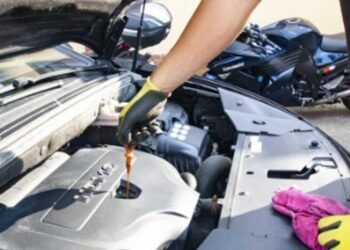Making an auto donation is an excellent way to let go of your old car if you’re considering upgrading or moving. You get to help people in need and avoid the hassle of disposing of your vehicle. Here are things to do before donating your car to charity for a smooth and successful donation process:
1. Find a Reputable Charity
Donating your car to a reputable organization can benefit you and those in need. A reputable organization will likely refurbish your car and give it to someone who needs it, or sell it and use the money to help people get back on their feet. It’ll also help you, as you may enjoy tax benefits from your donation.
Look for organizations registered as tax-exempt nonprofits. Tax-exempt status is proof of being a charity organization. Contact your chosen organizations to inquire about their programs and how they use vehicle donations. This will help determine whether your auto donation can positively impact the community.
2. Review Your Charity’s Requirements
Some charities accept vehicles in all conditions. This is common among organizations that resell cars or car parts to fund their programs. You can arrange for such charities to get your car even though it’s inoperable.
Other charities accept vehicles in good working condition. They may state this if they intend to donate the cars to needy people. In this case, evaluate your car’s condition before donating. Determine if your car can be driven safely and if it requires repairs. If it does, inform your chosen charity so they can make the necessary arrangements.
Reviewing your charity’s policies will tell you what to expect throughout the donation process. The policies typically contain information on the documents to expect and how your auto donation will be transported. They also contain guidelines on donating cars with liens. Charities that accept cars with liens typically require donors to submit lien release letters. A lien release letter proves that your vehicle has been released from its lien.
3. Understand the Tax Implications
Understanding your donation’s tax implications is key if you intend to claim a deductible on your taxes. Understand the rules surrounding charitable contributions by reviewing IRS guidelines. A charity’s vehicle use can determine your eligibility for a deduction. You can claim one if your chosen charity donates or sells the vehicle to support a needy individual, uses it to further their charitable purpose, or makes significant changes to the vehicle.
The IRS also has guidelines on the amount you can deduct. You can claim the amount your car sells for if it’s sold for more than $500. If sold for less than $500, you can claim its fair market value up to $500 or the amount it’s sold for if it’s less than the fair market value. Estimate your vehicle’s value before donating to determine which claim to file.
4. Prepare the Vehicle’s Paperwork
Charities require donors to provide titles to show they own the cars being donated. Contact your local Department of Motor Vehicles (DMV) to get a duplicate copy if you can’t locate your car title. Prepare your car’s maintenance and repair records and accident history, if any. These records can help the charity maintain the vehicle as needed.
5. Prepare Your Vehicle for Delivery
While many charities accept a car in as-is condition, it’s best to prepare it. You can prepare your car by:
- Removing personal belongings: Check all vehicle compartments under the seats and the trunk for personal items.
- Cleaning it: Give your car a standard wash to remove dirt and debris. This can make work easier for your chosen charity.
- Collecting keys: Gather all your keys and the remote key fob if you own one. You’ll need to hand over the keys along with your car.
- Canceling your insurance: Notify your insurance provider about your donation so they can terminate your policy. Wait until you transfer the vehicle to your charity to cancel your insurance.
Prepare for Your Auto Donation
An auto donation can be rewarding for everyone involved. You can help improve someone else’s life, facilitate a charity’s operations by offering a means of transport, and enjoy a deductible. Prepare for donation by identifying the right charity and reviewing its policies to facilitate a hassle-free transfer.












